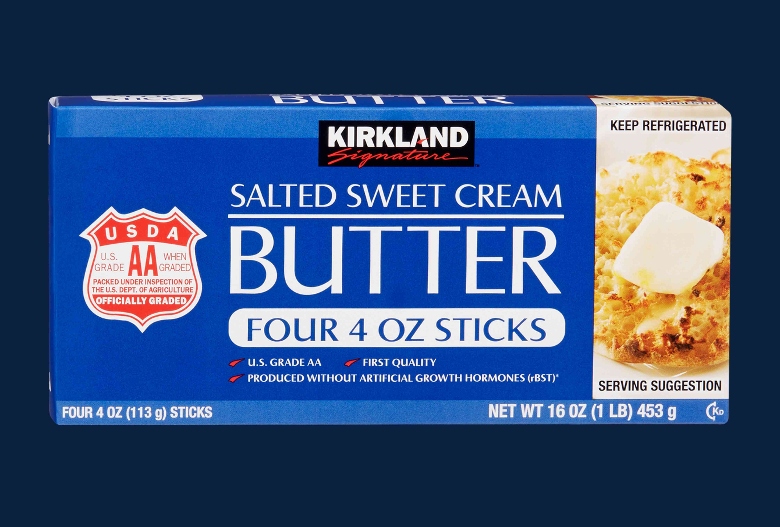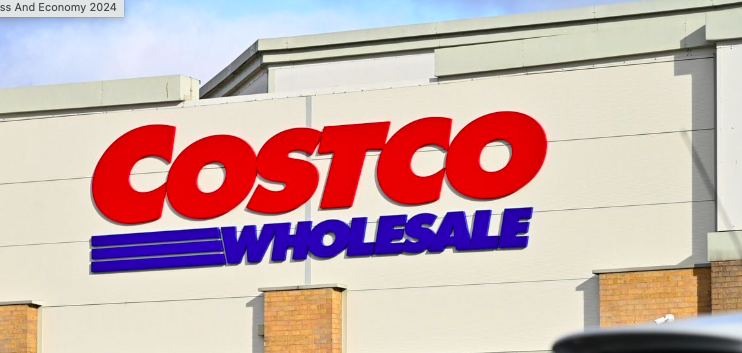The Food and Drug Administration (FDA) recently announced a recall for nearly 80,000 pounds of Kirkland Signature butter sold at Costco. The reason? A labeling oversight: the packages failed to state, “Contains milk.” This recall, impacting 46,800 pounds of unsalted and 32,400 pounds of salted butter, has ignited debate, with many questioning if it reflects an overreliance on rigid regulatory guidelines at the expense of common sense.
In its advisory, the FDA issued a Class II recall, labeling it a situation where the product’s use “may cause temporary or medically reversible adverse health consequences or where the probability of serious adverse health consequences is remote.” Yet, the recall has drawn considerable skepticism, with critics questioning the necessity of a government-mandated label confirming what is essentially a given: that butter, made from cream, inherently contains milk.
Critics say the recall reflects the FDA’s tendency to prioritize bureaucratic formalities over practical considerations. While the FDA notes that the missing allergen statement could put individuals with milk allergies at risk, others argue that butter’s basic ingredients are widely understood. As the agency pointed out, the recall centers not on the quality of the butter itself but on compliance with standardized allergen labeling requirements. “Butter lists cream but may be missing the ‘Contains Milk’ statement,” the FDA clarified.
The recall comes at a time when President-elect Donald Trump’s administration is advancing its “Make America Healthy Again” (MAHA) initiative. Backed by figures like health advocate Robert F. Kennedy Jr. and wellness proponents Calley and Casey Means, the MAHA movement aims to re-evaluate current health policies, favoring whole foods and personal health over pharmaceutical dependence. Critics of the FDA’s approach argue that focusing on issues like butter labeling only diverts resources from more pressing health initiatives.
The timing has also rekindled support for another proposal from Elon Musk, who has long been vocal about the inefficiencies within government bureaucracies. Musk advocates for a new Department of Government Efficiency (DOGE), which would streamline regulatory processes and limit government waste. Under Trump’s administration, the DOGE concept has gained traction, with some suggesting Musk might even helm the department if established, possibly working alongside entrepreneur Vivek Ramaswamy.
For Musk’s supporters, the butter recall represents a prime example of why such an overhaul is needed. They argue that enforcing strict bureaucratic standards, like allergen labeling for butter, is emblematic of a government machine that has strayed too far from practical governance. The goal of a department focused on efficiency, they contend, would be to prevent unnecessary interventions that many see as “wasteful,” such as recalling tens of thousands of pounds of butter over a label.
The FDA’s butter recall also touches on larger health issues concerning the American diet. While Kirkland butter—a real, minimally processed food—is subject to strict regulatory action for a minor label oversight, some critics point out that the FDA remains comparatively lenient with heavily processed products that flood the market. Industrial seed oils, often marketed as butter substitutes, are a case in point. These products, which research links to inflammation and other health risks, face fewer hurdles due to their adherence to labeling standards, despite being nutritionally inferior to whole-food alternatives like butter. This discrepancy has led to calls for the FDA to shift its focus, aligning with the goals of the MAHA movement to promote health through real foods rather than processed options.
Many wonder if the $5 billion food safety budget, supporting both USDA and FDA programs, could be better utilized. They argue that more of these resources could support public health education, nutritional research, and the kind of comprehensive health initiatives promoted by the MAHA movement. Advocates for reform argue that reducing regulatory strictness around established, natural food items like butter could allow the FDA to better allocate resources to address issues with genuinely harmful food products.
Supporters of the MAHA movement suggest that an ideal government structure would incentivize health agencies to prioritize policies promoting better dietary choices, more physical activity, and fewer dependencies on medications. They see Trump’s administration as an opportunity to re-center health policy around these goals, encouraging American families to adopt balanced diets centered on whole foods, like butter, that require minimal processing. This philosophy aligns with Trump’s broader platform, emphasizing a reduced regulatory footprint and a streamlined approach to government intervention.
The debate surrounding the Kirkland butter recall highlights a larger conversation on the role of government regulation in Americans’ lives. Advocates for streamlined government processes, including Musk and Trump’s supporters, argue that the butter recall showcases the FDA’s often overly cautious approach to food labeling. Conversely, proponents of the FDA’s actions assert that allergen labeling remains essential, as even well-understood ingredients like butter can pose risks to individuals with specific allergies.
As Trump prepares to take office, his administration faces questions about the balance between necessary regulation and bureaucratic excess. For now, the butter recall remains a microcosm of this larger debate, illustrating the contrasting perspectives on what constitutes effective, efficient governance. Whether initiatives like the Department of Government Efficiency will materialize and succeed in recalibrating these policies remains uncertain. However, what is clear is that these conversations are driving an important dialogue on how the government can best serve and protect its citizens without bogging down essential resources in excessive regulatory mandates.


I suppose as stupid as some people are today,they don’t know that butter is made from Cream that comes in the milk.